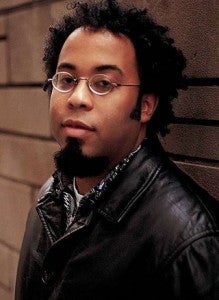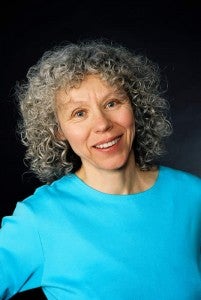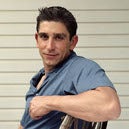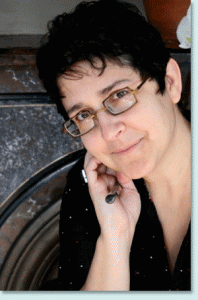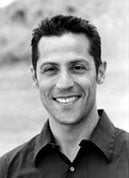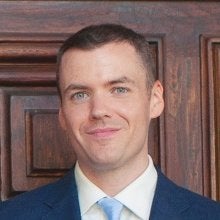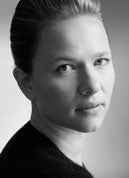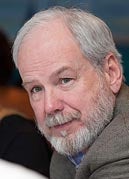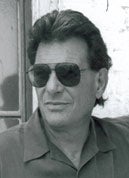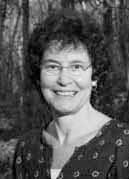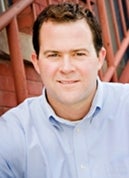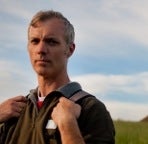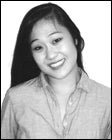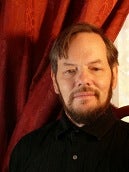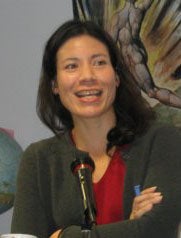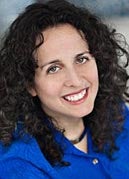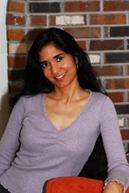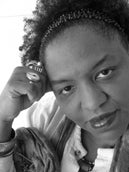Please click one of the collapsible tabs to read more about the 2012 Ocean State Summer Writing Conference.
These tabs may take a while to load!
To return to the current conference, click on “Ocean State Summer Writing Conference” above.
View photos of the conference on Facebook (friend us for special news!)
or on Picasa (you won’t need to login).
-
SAVE THE DATE!
JUNE 20-22, 2013
Visit us again soon for more information.
PHOTOS FROM THE 2012 CONFERENCE
View photos of the conference on Facebook (friend us for special news!)
or on Picasa (you won’t need to login.)2012 KEYNOTE SPEAKERS
By day, absorb the wisdom and insights of some of today’s finest writers.
By night, explore the area’s colonial history, natural landscapes and seascapes, or the art galleries, museums and world-class dining in nearby Providence.
Writers of all levels will find master classes, craft sessions, workshops in fiction, nonfiction and poetry to suit their needs.
-
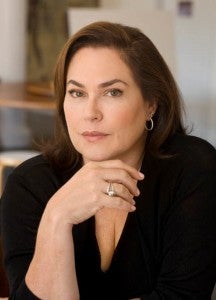 Amy Bloom is the author of two novels and three collections of short stories. Her New York Times bestselling novel Away was called a “literary triumph” by the Times, while The Washington Post declared it, “desperate and impassioned, erotic and moving, absolutely hypnotic.” Her first novel, Love Invents Us, was called “an unsettling tale of desire.” Bloom’s short fiction includes Where the God Of Love Hangs Out(Random House, 2010), also a New York Times bestseller;Come to Me, a National Book Award finalist; and A Blind Man Can See How Much I Love You, nominated for the National Book Critics Circle Award. Her first nonfiction book wasNormal: Transsexual CEOs, Crossdressing Cops and Hermaphrodites with Attitudes, now a staple of university sociology and biology courses. Her work has been translated into 15 languages. She is the University Writer in Residence at Wesleyan University.
Amy Bloom is the author of two novels and three collections of short stories. Her New York Times bestselling novel Away was called a “literary triumph” by the Times, while The Washington Post declared it, “desperate and impassioned, erotic and moving, absolutely hypnotic.” Her first novel, Love Invents Us, was called “an unsettling tale of desire.” Bloom’s short fiction includes Where the God Of Love Hangs Out(Random House, 2010), also a New York Times bestseller;Come to Me, a National Book Award finalist; and A Blind Man Can See How Much I Love You, nominated for the National Book Critics Circle Award. Her first nonfiction book wasNormal: Transsexual CEOs, Crossdressing Cops and Hermaphrodites with Attitudes, now a staple of university sociology and biology courses. Her work has been translated into 15 languages. She is the University Writer in Residence at Wesleyan University.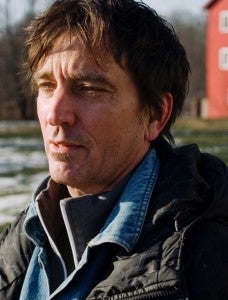 Nick Flynn is the author of two memoirs, The Ticking is the Bomb: A Memoir of Bewilderment (Norton, 2010) and Another Bullshit Night in Suck City (Norton, 2004), which won the PEN/Martha Albrand Award for the Art of the Memoir and has been translated into fifteen languages. Another Bullshit Night in Suck City has been made into a film, Being Flynn, starring Robert DeNiro as Flynn’s father, Julianne Moore as his mother, and Paul Dano as Nick. He is also the author of three books of poetry, The Captain Asks For a Show of Hands(Graywolf, 2011), Some Ether (Graywolf, 2000), which won the PEN/Joyce Osterweil Award, and Blind Huber (Graywolf, 2002). He has been awarded fellowships from The Guggenheim Foundation, The Library of Congress, The Amy Lowell Trust, and The Fine Arts Work Center. Some of the venues his poems, essays and non-fiction have appeared in include The New Yorker, the Paris Review, National Public Radio’s “This American Life,” and The New York Times Book Review. One semester a year, he teaches at the University of Houston and spends the rest of the year elsewhere.
Nick Flynn is the author of two memoirs, The Ticking is the Bomb: A Memoir of Bewilderment (Norton, 2010) and Another Bullshit Night in Suck City (Norton, 2004), which won the PEN/Martha Albrand Award for the Art of the Memoir and has been translated into fifteen languages. Another Bullshit Night in Suck City has been made into a film, Being Flynn, starring Robert DeNiro as Flynn’s father, Julianne Moore as his mother, and Paul Dano as Nick. He is also the author of three books of poetry, The Captain Asks For a Show of Hands(Graywolf, 2011), Some Ether (Graywolf, 2000), which won the PEN/Joyce Osterweil Award, and Blind Huber (Graywolf, 2002). He has been awarded fellowships from The Guggenheim Foundation, The Library of Congress, The Amy Lowell Trust, and The Fine Arts Work Center. Some of the venues his poems, essays and non-fiction have appeared in include The New Yorker, the Paris Review, National Public Radio’s “This American Life,” and The New York Times Book Review. One semester a year, he teaches at the University of Houston and spends the rest of the year elsewhere.Kevin Young is widely regarded as one of the leading poets of his generation, one who finds meaning and inspiration in African American music, particularly the blues, and in the bittersweet history of Black America. His many books of poetry include Ardency: A Chronicle of the Amistad Rebels (Knopf, 2011); Dear Darkness (Knopf, 2008); and For the Confederate Dead (2007). Young was a 1993 National Poetry Series winner for Most Way Home, which also received the John C. Zacharis First Book Award of Ploughshares magazine. Other collections include To Repel Ghosts: Five Sides in B Minor(2001), a poetic tribute to painter and graffiti artist Jean-Michel Basquiat, and a finalist for the James Laughlin Award of the Academy of American Poets; and Jelly Roll: A Blues (2003), a finalist for both the National Book Award and the Los Angeles Times Book Award. His awards include a Stegner Fellowship in Poetry at Stanford University, a Guggenheim Foundation Fellowship, and a MacDowell Colony Fellowship. He is currently Atticus Haygood Professor of Creative Writing and English, and curator of Literary Collections and the Raymond Danowski Poetry Library at Emory University.
Seminars, Workshops and Craft Sessions
Kathleen Aguero’s poetry collections include Investigations: The Mystery of the Girl Sleuth, Daughter Of, The Real Weather, and Thirsty Day. She has also co-edited three volumes of multi-cultural literature for the University of Georgia Press. She is the winner of the 2008 Firman Houghton Award from the New England Poetry Club and a recipient of grants from the Massachusetts Cultural Council and the Elgin-Cox Foundation. She teaches at Pine Manor College, Chestnut Hill, Mass., in both the undergraduate and low-residency M.F.A. programs and in Changing Lives through Literature, an alternative sentencing program.
Lashonda Katrice Barnett is the author of a short fiction collection and editor of I Got Thunder: Black Women Songwriters On Their Craft (2007) and Off The Record: Conversations with African American and Brazilian Women Musicians (Rowman & Littlefield, 2012). She recently completed her debut novel, Jam!, a work of historical fiction. Visiting Scholar at Brown University, she divides her time between Rhode Island and Manhattan.www.lashondabarnett.com
Richard Blanco was made in Cuba, born in Madrid, and raised and educated in Miami. His acclaimed first book of poetry, City of a Hundred Fires, explores the yearnings and negotiation of cultural identity as a Cuban-American, and received the Agnes Starrett Poetry Prize from the University of Pittsburgh Press. His second book, Directions to The Beach of the Dead, won the Beyond Margins Award from the PEN American Center for its continued exploration of the universal themes of cultural identity and homecoming. A third collection,Looking for The Gulf Motel, was published by the University of Pittsburgh Press in 2012.
A 2011 Guggenheim Fellow in Nonfiction, Mary Cappello is the author of four books of literary nonfiction, including Called Back: My Reply to Cancer, My Return to Life (which won a Foreword Book of the Year Award, and Independent Publishers Prize), and Awkward: A Detour (a Los Angeles Times Bestseller). Her numerous essays and experimental prose appear in such venues as The Georgia Review,Salmagundi, and Cabinet Magazine. Her work has been featured in The New York Times, Salon.com, The Huffington Post, NPR, MSNBC, in guest author blogs for Powells Books, and on five separate occasions as Notable Essay of the Year in Best American Essays. A recipient of The Bechtel Prize for Educating the Imagination from Teachers and Writers Collaborative, and the Dorothea Lange-Paul Taylor Prize from Duke University’s Center for Documentary Studies, Cappello is a former Fulbright Lecturer at the Gorky Literary Institute (Moscow), and currently Professor of English and creative writing at URI. Based on her most recent book, Swallow, she has served as Distinguished Visiting Professor at U/Penn’s Grand Rounds in Otolaryngology, as Presidential Lecturer for the ABEA, and as co-curator of the newly refurbished Chevalier Jackson Foreign Body Collection in Philadelphia’s Mutter Museum.
Tina Chang Brooklyn Poet Laureate, is the author of the poetry collections Half-Lit Houses (2004) and Of Gods & Strangers (2011). She is also co-editor of the Norton anthology Language for a New Century: Contemporary Poetry from the Middle East, Asia, and Beyond. Her poems have been published in journals such as American Poet, McSweeney’s, The New York Times, and Ploughshares. She has received awards from the Academy of American Poets, the New York Foundation for the Arts, Poets & Writers, among others. She teaches poetry at Sarah Lawrence College and she is also a member of the international writing faculty at the City University of Hong Kong, the first low-residency MFA program to be established in Asia.
Peter Covino is a poet, translator, editor, and Assistant Professor of English and Creative Writing at the University of Rhode Island. His new book of poetry, The Right Place to Jump, is forthcoming from New Issues Press in 2012; he is the winner of the 2007 PEN America/Osterweil Award for emerging poets and also the author of Cut Off the Ears of Winter (New Issues, 2005) and the chapbook Straight Boyfriend (2001), winner of the Frank O’Hara Poetry Prize. His co-edited volume, Essays on Italian American Literature and Culture will be published by Bordighera Press, CUNY (2011). Recent poems have appeared, or are forthcoming in American Poetry Review, LIT, and The Yale Review among other venues. Covino is also a founding editor of Barrow Street Press and poetry editor for VIA: Voices in Italian Americana.
Richard Florest is senior associate at the New York based agency, Rob Weisbach Creative Management. Prior to this, he was at the Open Road Integrated Media, where he has been Director of Acquisitions, Author Brands. Among his ebook projects at Open Road are the works of literary icon Hubert Selby, Jr. and New York Times bestselling horror writer Robert R. McCammon. Florest started his publishing career at the Kneerim & Williams literary agency in Boston before assuming editorial roles at Penguin Group, Miramax, and The Weinstein Company. He published critically acclaimed and bestselling fiction and nonfiction including Tan Twan Eng’s Man Booker Prize-nominee The Gift of Rain, Sergei Lukyanenko’s internationally bestselling Night Watch series, and Tom Folsom’s New York Times bestseller The Mad Ones.
Amity Gaige is the author of two novels, O My Darling (2005) and The Folded World (2007). In 2007, The Folded World was named Foreword Book of the Year, best book of fiction in the Independent Publisher Book Awards, and one of the year’s Favorite Books by the Chicago Tribune. Amity is the winner of a Fulbright Fellowship, a McDowell Colony Fellowship, and in 2006, she was recognized as one of “5 Under 35” outstanding emerging writers by the National Book Foundation. She lived and taught in Rhode Island for many years before moving to Amherst, Massachusetts in 2006. She currently teaches creative writing and literature at Mt. Holyoke College.
Richard Hoffman is author of the celebrated memoir Half the House; the short story collection Interference and Other Stories; and three poetry collections: Without Paradise; Gold Star Road, winner of the 2007 Barrow Street Press Poetry Prize and the New England Poetry Club’s Sheila Motton Book Award; and most recently, Emblem. His new memoir, Love & Fury, will be published by Beacon Press in 2014. He teaches at Emerson College and currently serves as chair of PEN New England.
Robert Leuci is an adjunct professor in the University of Rhode Island English department. He has written seven crime novels, translated into four languages and has most recently published a memoir with Harper Collins, All The Centurions. He has also written a television play for the Arts And Entertainment network show “100 Centre Street” and has done a radio play, “Brooklyn Roofs,” for German radio. In 1999 he received the South County Center For the Arts literary prize. He lives in Saunderstown, Rhode Island.
Jody Lisberger, PhD, MFA. Jody Lisberger’s story collection, Remember Love (Fleur-de-Lis Press, 2008), was nominated for a National Book Award. Her stories have appeared inFugue, Michigan Quarterly Review, Thema, Confrontation, and The Louisville Review. She has won fiction prizes from American Literary Review and Quarterly West, and her story “Crucible” was nominated for a Pushcart Award. She is on the fiction faculty at the brief residency MFA in Writing Program at Spalding University, Louisville, Kentucky. She has taught fiction, creative nonfiction, literature, and feminist theory at Brown, Harvard, Tufts, Holy Cross, Boston University, and University of Rhode Island, where she is currently the Director of Women’s Studies. She has also recently published creative nonfiction essays on pharmaceutical marketing (“Why Women Should Take Heed”), gender issues in the workplace (“The Politics of Data”), and worked as a journalist, editor, and grant writer.
David McGlynn story collection, The End of the Straight and Narrow, won the 2008 Utah Book Award for Fiction and was named an “Outstanding Achievement” by the Wisconsin Librarians’ Association. His memoir, A Door in the Ocean: A Memoir, will be released in the summer of 2012. His stories and essays have appeared in Men’s Health, The Huffington Post, Best American Sports Writing, and numerous literary journals. He received his MFA and PhD from the University of Utah, where he also served as the managing editor of Western Humanities Review, and currently teaches at Lawrence University in Appleton, Wisconsin.
Patrick Madden is the author of Quotidiana, finalist for the PEN Center USA award for creative nonfiction and winner of Independent Publisher and ForeWord Reviews book of the year awards. His essays have appeared recently in Fourth Genre, The Iowa Review, The Normal School, and in the Best American Spiritual Writing and Best Creative Nonfiction anthologies. He teaches at Brigham Young University and Vermont College, and curates www.quotidiana.org, an online anthology of classical essays.
Carrie Pestritto joined Prospect Agency in 2011 after working as an assistant at Writers House. With a B.A. in English from Amherst College, she has experienced all sides of the publishing industry, having worked as a ghostwriter, freelance writer, and in the editorial acquisitions department of the Greenwood Publishing Group. As an agent, she loves the thrill of finding new authors with strong, unique voices and working closely with her clients to develop their ideas and manuscripts. For Carrie, extraordinary fiction and non-fiction share the abilty to transport readers to new and exciting places. As a history and mythology buff, she is intrigued by books that introduce her to another culture or time period. She is looking for description and detail that will make her feel like she is inside the story and interest her in a subject she never thought she would want to read about or, conversely, introduce her to startling facts about something or someone she believed she already knew everything about.
Russell Potter was born and raised in Cleveland Ohio; he attended Goddard College and The Evergreen State College, and earned his Ph.D. in English from Brown University. He’s the author of nonfiction books on topics as varied as the history of Hip-hop and British Arctic exploration, and appeared in Arctic Passage, an Emmy-nominated episode of PBS’s NOVA in 2006. His debut novel, PYG: The Memoirs of Toby, the Learned Pig, is based on the career of an actual “learned” pig that toured England in the 1780’s. Toby’s performances consisted of answering questions from the audience by spelling out his answers using cards on which individual letters of the alphabet were written. The pig’s ability to reply to all manner of inquiries amazed all who saw him, prompting the poet Robert Southey to declare him “a far greater object of admiration to the English nation than ever was Sir Isaac Newton.” PYG was originally published in the UK by Canongate Books in 2011, and will be published in the US as a paperback original by Penguin Books in August of 2012. He lives in Providence and is Professor of English at Rhode Island College.
Kristin Prevallet is a consulting hypnotist certified through the National Guild of Hypnotists and a Integral Life Coach certified through the International Association of Counselors and Therapists. She is the author of four books of conceptual and documentary poetics including the critically acclaimed I, Afterlife: Essay in Mourning Time. This spring, The Belladonna Collaborative will be publishing her most recent book,Everywhere Here and in Brooklyn: Another Four Quartets. She edited and introduced the critical edition of Helen Adam’s work, A Helen Adam Reader (National Poetry Foundation) and recent writing has appeared in Spoon River Review and Fourth Genre: Adventures in Nonfiction as well as in the anthologies Rhythm of Structure: Mathematics, Art, and Poetic Reflection and I’ll Drown My Book: Conceptual Writing by Women. She has received residencies and awards from the New York Foundation for the Arts, PEN America, the Poetry Society of America, George Mason University, and Spalding University. A former professor of investigative poetics at Naropa Institute, Pratt University, and Eugene Lang College, she currently directs the Center for Mindbody Studies where she leads workshops and works with private clients. She frequently writes about hypnosis and mental strategies ontrancepoetics.com and her popular e-book On Reacting is the first book in the Critical Rewiring Series: Return To Who You Want To Be.
Martha Elena Rojas is Associate Professor of English and Director of the Edmund S. and Nathalie Rumowicz Program in Literature and the Sea at the University of Rhode Island. Her first book entitled Diplomatic Letters: Becoming a Nation Among Nations in Early America is under contract with the University of Pennsylvania Press, and she is currently at work on a study of the coastal imagination.
Author, blogger and book writing coach, Lisa Tenerspecializes in helping authors write and publish a compelling nonfiction book–and takes them step-by-step through her unique process. She teaches on the faculty of Harvard Medical School’s CME publishing course and at other conferences.She has been on ABC World News, PBS TV and been quoted in USA Weekend, The Boston Globe, Providence Journal and much more. Her book writing and book proposal clients have signed 5- and 6-figure publishing deals with Random House, Simon and Schuster, Charles Scribner’s Sons, Prometheus Books and many other publishers, as well as self-publishing. Visit Lisa online at www.LisaTener.com.
Padma Venkatraman is the author of two critically acclaimed novels – Climbing the Stairs and Island’s End – and has had over 100 nonfiction articles published in American, Indian and European journals. Her debut novel, Climbing the Stairs, was released to starred reviews and won the Boston Authors Club award and the ASTAL RI Book of the Year award, in addition to being shortlisted for several state awards and receiving numerous other honors such as a Booksense Notable citation, an ALA BBYA, a New York Public Library best book for teens, a CCBC/NCSS notable, a Bank Street college of Education best book, a Boolinks best books of summer, a Booklist Editor’s Choice Best Book of the Year, a PW Flying Start, a Capitol Choices selection and more. Her second novel,Island’s End, was released to starred reviews in Kirkus, Bookslist, Publishers Weekly and School Library Journal and is listed on several “best books of 2011” lists: Kirkus, Booklist, ALA, YALSA, Amelia Bloomer and CCBC. Padma Venkatraman lives in Rhode Island and teaches scientific writing at URI.
Crystal Wilkinson is the author of two volumes of short stories, Blackberries, Blackberries and Water Street. She is a winner of the Chaffin Award for Appalachian Literature and has been a finalist for both the Orange Prize for Fiction and the Hurston/Wright Legacy Award. Wilkinson is from the Knobs region of Kentucky and teaches in the BFA in Creative Writing Program at Morehead State University and the MFA in Writing program at Spalding University. She and her partner Ron Davis edit Mythium Literary Journal. They also own The Wild Fig Bookstore in Lexington, KY.
-
Please return for updates. Direct inquiries to ossummerwriting@gmail.com
Thursday, June 21
 12 – 1:30 p.m. Registration: Part I of Conference Begins
12 – 1:30 p.m. Registration: Part I of Conference Begins1:30-3:30 p.m. Workshops Session I (See Workshop Descriptions)
- Creative Non-fiction: Patrick Madden
- Beginning Fiction: Jody Lisberger
- Intermediate Fiction: Amity Gaige
- Advanced Fiction: Crystal Wilkinson
- Memoir: Richard Hoffman
- Beginning/Intermediate Poetry: Richard Blanco
- Advanced Poetry: Tina Chang
3:30 – 4:30 p.m. One-on-One Consultations
3:30 – 4:15 p.m. Reception and Participant Showcase
4:30 – 5:30 p.m. Reading: Crystal Wilkinson, Richard Blanco, Patrick Madden
Friday, June 22
8:30 – 9 a.m. Continental Breakfast
 8:30 – 12:15 Registration: Part II of the Conference Begins at 12:15
8:30 – 12:15 Registration: Part II of the Conference Begins at 12:159 – 11 a.m. Workshops Session II
- Creative Non-fiction: Patrick Madden
- Beginning Fiction: Jody Lisberger
- Intermediate Fiction: Amity Gaige
- Advanced Fiction: Crystal Wilkinson
- Memoir: Richard Hoffman
- Beginning/Intermediate Poetry: Richard Blanco
- Advanced Poetry: Tina Chang
11:15 a.m. – 12:15 p.m. Box Lunch
12:30 – 1:30 p.m. Keynote: Amy Bloom (free and open to the public)
2 – 3 p.m. Panels and Craft Sessions I
- Conversation: “Writers at Work” (Nick Flynn, Richard Hoffman, and Crystal Wilkinson)
- Craft Session: Hypnosis / Trance Writing I (Instructor: Kristin Prevallet)
- Craft Session: Fiction (Instructor: David McGlynn)
3:15 – 4:15 p.m. Panels and Craft Sessions II
- Conversation: “Writers at Work” (Mary Cappello and Patrick Madden)
- Conversation: On Agents (Padma Venkatraman, Carrie Pestritto, and Richard Florest)
- Craft Session: Poetry (Instructor: Kathi Aguero)
- Craft Session: The Interview (Instructor: LaShonda Barnett)
4:30 – 5:30 p.m. Keynote: Nick Flynn (free and open to the public)
5:30 – 5:45 p.m. Book signing
5:45 – 6:30 p.m. Conference participant reception to welcome Nick Flynn to URI
6:30 – 8:30 p.m. Dinner & Reading with LaShonda Barnett, Tina Chang, David McGlynn,Richard Hoffman
Saturday, June 23
8:30 – 9 a.m. Continental Breakfast
9 – 11 a.m. Workshops Session III
- Creative Non-fiction: Patrick Madden
- Beginning Fiction: Jody Lisberger
- Intermediate Fiction: Amity Gaige
- Advanced Fiction: Crystal Wilkinson
- Memoir: Richard Hoffman
- Beginning/Intermediate Poetry: Richard Blanco
- Advanced Poetry: Tina Chang
9 – 11 a.m. Seminars & Intensives
- Mystery Writing: Robert Leuci
- Poetry: Kathi Aguero
- Fiction / Nonfiction: David McGlynn
- Nonfiction (Trance / Hypnosis): Kristin Prevallet
11:15 – 12:15 p.m. Craft Sessions III
- Craft Session: New Paths to Publication: Russell Potter
- Craft Session: Historical Fiction: LaShonda Barnett
- Craft Session: Poetry (Manuscript Session): Peter Covino
- Craft Session: Fiction / Nonfiction: Jody Lisberger
12:15 – 1 p.m. Box lunch
1 – 2 p.m. Keynote Kevin Young (free and open to the public)
2:15 – 3:15 p.m. Panels and Craft Sessions IV
- Conversation: Writing Ethnicity through Poetry (Tina Chang and Richard Blanco)
- Craft Session: Nonfiction/Memoir (Instructor: Richard Hoffman)
- Craft Session: Fiction (Instructor: Crystal Wilkinson
- Craft Session: Fiction (Instructor: Russell Potter)
3:30 – 4:30 p.m. Panels and Craft Sessions V
- Conversation: “Writers at Work” (Kevin Young, Peter Covino and Martha Rojas)
- Conversation: On Publishing (Padma Venkatraman and Lisa Tener)
- Craft Session: Meditation, Memory & Writing (Mary Cappello)
4:45 – 6 p.m.One-on-one Consultations
4:45 – 6 p.m.Conference participants’ reading
If you have a disability and need an accommodation, please call 401.569.9801 at least three business days in advance. For TTY assistance, please call the Rhode Island Relay Service at 800.745.5555.
-
Here is a closer look at some of our conference offerings. Check back regularly as new events are added, or follow us on Facebook, where you will find more information about the programs, presenters, writing events in the Northeast, and resources for writers.
 THREE – DAY WORKSHOPS
THREE – DAY WORKSHOPS(Each workshop meets Thursday, 1:30 – 3:30 p.m.; Friday, 9 – 11 a.m.; and Saturday, 9 – 11 a.m.)
- Fiction Workshop (Beginner)
Instructor: Jody LisbergerThis workshop will study examples and do craft writing exercises relevant to the essential craft of writing fiction. We will examine how yearning works as the engine for developing character and story structure, look at various ways to develop character, dramatic tension, and dialogue, play with the selective use of details, setting, and verbs, and examine effective uses of back story, beginnings, and endings. This workshop will generate material for participants to take home and use to develop complete stories. There will be a short writing assignment and reading assignment on Thursday and Friday that will be due for workshop on Saturday.
- Fiction Workshop (Beginner / Intermediate): “Exercising Yourself”
Instructor: Amity GaigeThis workshop for beginning and intermediate writers of fiction will address the various ways in which writers can guide their own satisfying writing lives with “exercise” – the use of prompts or unpredictable story-starters. We’ll generate first lines, steal story ideas from the news, and help develop – as a class – a trove of prompts to take home with us. The instructor will also supply ideas about craft that underlie various exercises.
- Fiction Workshop (Advanced): “From Brushstrokes to Bulldozers”
Instructor: Crystal WilkinsonGood writing comes only from good revisions. This is a workshop focused on training your eye toward becoming your own best editor. You’ll learn how to better make small and large editing decisions and know when to apply the smallest of corrections and the large rewrites. Sessions will include lecture, exercises, task lists and we will take a look at a revised story from a published author. Enrolled participants will be given the published story prior to the class.
- Creative Nonfiction Workshop
Instructor: Patrick MaddenMemoirists and personal essayists write to make their own lives interesting to a readership of strangers. Their challenge, then, is to universalize their experience, a task best accomplished by reflecting from a current writerly perspective on past events lived in relative ignorance. This workshop will offer a brief theoretical framework and several examples of the split self, then give participants the chance to generate new writing and revise their current thinking into a piece they’ve written before (please bring three to five pages of a memoir/ personal essay).
- Poetry Workshop (Beginning & Intermediate): “Five Ways to Break a Line and Other Mysteries”
Instructor: Richard BlancoWhere to break a line? What makes a stanza, a stanza? What makes for a great metaphor and why is it worth a thousand words? When does a poem end? What is the poem “saying” or want to “say,” but isn’t? What insights does it or doesn’t it offer? What is the emotional center of the poem; its reason for being? These are some of the questions we will ask as we dive deeper into some of these more elusive, yet essential elements of poetry, namely: construction of the line, rhythm, figurative language, and poetic closure, among others. We will read various illustrative poems, complete writing exercises, and critique student work with a focus on how these questions of craft are ‘answered’ in our poems.
- Poetry Workshop (Advanced): “Speaker Box”
Instructor: Tina ChangHow does one “find” and cultivate one’s own voice? Is it something that can be developed or is voice innate, a cadence that lives in us? These are questions we will explore as we discuss voice, personae, and dramatic dialogue in an effort to uncover the speaker’s identity on the page. In doing so we will encounter subjects such as gender, history, culture, age, nationality, sexuality. In this class, we will examine poems ranging from the classical to contemporary as well as local and global poets. Class work will be comprised of student writing and critique, poetic experiments, and wild meanderings in order to understand future possibilities for one’s own poems.
- Memoir Workshop
Instructor: Richard HoffmanCarl Klaus writes in The Made-Up Self that the narrator in a personal essay or memoir is “a written construct, a fabricated thing, a character of sorts.” Certainly the “I” on the page is not the self but a representation of the self. Successful memoirs and essays must convince readers of the authenticity of the narrator. Through readings, in-class exercises, and assignments, we will explore what features of the “I” – voice, reflection, limitations – communicate authenticity and build trust with readers.
 INTENSIVES (SATURDAY 9 – 11 a.m.)
INTENSIVES (SATURDAY 9 – 11 a.m.)- Poetry: Learning Through Imitating
Instructor: Kathi AgueroGo to any museum and you will see apprentice artists copying the work of a master. As writers what can we learn by imitating other writers we admire? How can imitation be a path to discovering and honing our own style? During our time together, we will explore these questions. Bring an excerpt from a writer you admire and whose strategies you would like to learn.
- Mystery Writing
Instructor: Robert LeuciIn this intensive workshop, we will discuss the surreptitious and surprising ways we create a mystery novel, including advice on:
- opening with a bang
- suspense-building strategies
- crafting a plot that keeps ’em speculating
- creating and developing rich, well-rounded characters and scenes
In short, we’ll discuss how to write dialogue and scenes that capture interest and convince the reader you own the world you are describing.
- Fiction / Nonfiction: “Fun with Shapes: Story Plot and Structure”
Instructor: David McGlynnPlot often seems like a dirty word among fiction writers. Chaim Potok has even said, “If I had a plot that was all set in advance, why would I want go through the agony of writing the novel?” But does that mean that narrative plots and structures appear mysteriously, as though divinely inspired? And how do we know what scenes to write if we don’t know the plot? This intensive seminar will explore a few strategies for plotting and structuring stories and will include a series of exercises designed to help us put our imaginations into narrative order.
- Nonfiction: “Trance Writing and the Brain/Body Connection”
Instructor: Kristin PrevalletMetaphors, dreams, and automatic writing are three ways that writers communicate with their unconscious minds (or visa versa). Bringing together neuroscience and creative writing, you will come away from this interactive presentation with several insights on how to use your creative processes to communicate with your body to both generate material and move through blocks.
 CONVERSATIONS (Friday and Saturday)
CONVERSATIONS (Friday and Saturday)- Friday, 2 – 3 p.m.: “Writers at Work”
Nick Flynn, Richard Hoffman and Crystal Wilkinson will engage in an informal conversation about the writing life and answer audience questions about the challenges of breaking into the field, managing success, and continuing to produce compelling work. Participants to be announced.
- Friday, 3:15 – 4:15 p.m.: “Writers at Work”
Mary Cappello and Patrick Madden will engage in an informal conversation about the writing life and answer audience questions about the challenges of breaking into the field, managing success, and continuing to produce compelling work. Moderated by Don Rodrigues.
- Friday, 3:15 – 4:15 p.m.: “Agents: The Pros of Having a Pro Represent You and Your Work”
Carrie Pestritto of the New York based Prospect Agency will speak about her interests within the agency and about Prospect Agency. Joining the conversation will beRichard Florest, senior associate at the New York based agency, Rob Weisbach Creative Management. They will then open up the floor to discussion and invite participant to ask questions of interest to all attendees present, about the role of agents, seeking representation and other related publication issues. Padma Venkatraman (URI professor and author of Island’s End) will moderate the Q & A session.
- Saturday, 2:15 – 3:15 p.m.: “Writing Ethnicity through Poetry”
Tina Chang and Richard Blanco will discuss relationships between ethnicity and poetry; ethnicity’s relationship to nationality and culture; ethnicity as it is discovered in the self and by relation to others; structural impacts of ethnicity on writing; and historical relationships between ethnicity and writing and publishing.
- Saturday, 3:30 – 4:30 p.m.: “Writers at Work”
Kevin Young, Peter Covino and Martha Rojas will engage in an informal conversation about the writing life and answer audience questions about the challenges of breaking into the field, managing success, and continuing to produce compelling work.
- Saturday, 3:30 – 4:30 p.m.: “The Savvy Author’s Publishing Options: Understand The Exciting Opportunities, Avoid the Pitfalls and Choose Your Optimal Publishing Route”
Padma Venkatraman and Lisa Tener will discuss the contemporary publishing climate. This is an exciting time to be an author, with a plethora of publishing options available: e-books, gateway publishers, POD, traditional publishers, crowd-sourcing and more. Yet, it’s also a confusing time. In this session you’ll learn more about your options, how to avoid the pitfalls that befall unwary authors and also the benefits of specific publishing methods. We’ll explore publishing trends. We’ll address how your vision and goals play into the publishing path you choose. We’ll also address traditional publishing protocol and strategies:
- How to identify the right literary agents and/or publishers
- How to write a compelling query letter
- When and how to approach agents and publishers.
We’ll also do a hands-on in-class writing assignment so you can begin drafting a query letter right away.
 CRAFT SESSIONS (Friday and Saturday)
CRAFT SESSIONS (Friday and Saturday)- Friday, 2 – 3 p.m.: Nonfiction
Instructor: Kristin Prevallet“Trance Writing: Absorption” — In this seminar you will explore writing that was intentionally generated by accessing heightened states of consciousness and constraints of form. Oulipo, The Kabala, and new approaches to automatic writing will enliven and expand your creative process. Our goal will be to torque your creative power and find magic in the base materials you will be accessing.
- Friday, 2 – 3 p.m.: Fiction
Instructor: David McGlynn“Flirting with Disaster: Spirituality and Fiction Writing” — Tussling with God, or gods, is foundational to the English and American literary traditions. In recent years, however, “spiritual writing” has become a genre unto itself, published by religious presses and sold in religious stores. The fiction published by such presses and sold in such stores is often more concerned with upholding the faith as the ultimate moral compass than with examining the messier, more dramatic, and ultimately more compelling tensions between religious or spiritual faith and human life. This seminar considers contemporary fiction writers who write about spirituality without falling into formulas or dogma, and will include a few writing exercises to help us begin tussling with God for ourselves
- Friday, 3:15 – 4:15 p.m.: Poetry
Instructor: Kathi AgueroMyth as Metaphor — The actual story lines of many myths are simple, yet these myths have been retold and refashioned in literature and art throughout the centuries. Why is it that myth continues to yield new perspectives, and how can we use the metaphors myth provides to structure and deepen our own writing? In exploring these questions, we will focus on contemporary poems that treat myth as well as trying our own writing based on myth.
- Friday, 3:15 – 4:15 p.m.: The Interview
Instructor: LaShonda BarnettIt has been said that we live in an “interview society.” Interviews are used in almost every walk of contemporary American life. Designed to familiarize you with interviewing both as craft and a research methodology, this workshop is structured around five steps or stages of the interviewing process. These include: how to get started – who to interview; developing effective interview questions (and avoiding ineffective ones!); considering issues in inter-viewing (representation in the writing of people’s lives and identities); and the craft in interviewing itself (at the interview, your goal will be to get them to talking and telling stories, not just responding briefly to a series of questions you have). Participants should gain at least basic proficiency in undertaking a well-grounded, qualitative interview.
- Saturday, 11:15-12:15 p.m.: Fiction and Publishing
Instructor: Russell PotterNew Paths to Publication — The conventional path from author to publisher — the novel, the endless revisions, the query letter written according to the best advice, the agent, the deal — is no longer the only, or necessarily the best way to finally publish a book. In this seminar we’ll look at some recent case histories that illustrate these new trends in publication, while also asking participants to share their challenges, with the goal of assembling our own unconventional wisdoms.
- Saturday, 11:15 – 12:15 p.m.: Historical Fiction
Instructor: LaShonda BarnettThe Truthful Lie — This workshop group will consider the practical challenge at the core of writing historical fiction: the seamless integration of fictive imagination and historical fact. Truth relies on historical research. However, the evidence of historical reality must be woven into the verities of any good novel – plot, character, setting, structure. This session will treat discussion and deconstruction of exemplary scenes from Russell Banks (Cloudsplitter); Amy Bloom (Away); Edwidge Danticat (The Farming of Bones) and John Edgar Wideman (The Cattle Killings) as our examination of historical fiction elements, with particular attention on how to set the scene and establish the period and how to find a voice that is historically accurate in terms of language, but with modern appeal.
- Saturday, 11:15 – 12:15 p.m.: Poetry
Instructor: Peter CovinoPutting Together a Poetry Manuscript
— This craft seminar is geared for established and emerging poets who want and want to share practical advice about putting together a poetry manuscript and trying to find an appropriate publisher. The bulk of the discussion will focus on crafting a full-length collection, and when appropriate, smaller chapbook-size projects too. Our main goals will be to demystify the often baffling editorial process of small press publishing. Using two or three samples of anonymous work, this seminar will focus on specific issues of how editors (often quickly) consider issues of manuscript readiness, ordering poems, manuscript structure, and innovative poetic tensions and related techniques.
- Saturday, 11:15 – 12:15 p.m.: Fiction / Nonfiction
Instructor: Jody LisbergerShaping Scene
— This craft session will look at some examples in fiction and nonfiction where writers deliberately shape a scene to create maximum impact. It will propose some guidelines for how to begin, develop, and end scenes and offer a few exercises for writers to practice scene development.
- Saturday, 2:15-3:15 p.m.: Historical Fiction
Instructor: Russell PotterVoice in Historical Fiction: Learning to speak “Bygonese”
— Writing about his first foray into historical fiction, British novelist David Mitchell (The Thousand Autumns of Jacob De Zoet) said that he had to avoid the temptation to imitate period prose, declaring that “to a degree, the historical novelist must create a sort of dialect – I call it ‘Bygonese’ – which is inaccurate but plausible.” In this seminar we’ll look at some more (and less) successful examples of attempted Bygonese, and have a try ourselves at evoking with prose the tone and nuance of past epochs.
- Saturday, 2:15-3:15 p.m.: Memoir
Instructor: Richard HoffmanNarrative Authenticity — Carl Klaus writes in The Made-Up Self that the narrator in a personal essay or memoir is “a written construct, a fabricated thing, a character of sorts.” Certainly the “I” on the page is not the self but a representation of the self. Successful memoirs and essays must convince readers of the authenticity of the narrator. Through readings, in-class exercises, and assignments, we will explore what features of the “I” — voice, reflection, limitations — communicate authenticity and build trust with readers.
- Saturday, 2:15-3:15 p.m.: Fiction
Instructor: Crystal WilkinsonWhat Did He Say? Writing Dialogue
— Discover the secrets to strengthening your fiction with dialogue. Through published examples and exercises, you will learn to write dialogue that rings true, reveals character, creates conflict and surprises and informs your reader.
- Saturday, 3:30-4:30 p.m.: Meditation, Memory & Writing
Instructor: Mary CappelloSound; Touch; Pause: Conjuring Memory in Memoir –Â
In this workshop we will explore sundry ways in which memory can be conjured, and thereafter, never merely “transcribed” in memoir but transformed. Emphases on achieving quiet in an increasingly distracting world; learning to calibrate difference; and to cultivate a sensibility. Participants will be enjoined to write in this session in response to a set of richly conceived prompts that will help writers understand how memoir writing might not only access memory but actively theorize memory. What does it mean to re-member in the name of memoir? How do we know where our parents’ memories end and ours begin? What do you do if you want to write memoir but can’t remember? Tactility, sound, the object world, and language itself will bring us back and call forth “memory” as the first ground and order of memoir writing.
- Fiction Workshop (Beginner)
 Home
Home Browse
Browse Close
Close Events
Events Maps
Maps Email
Email Brightspace
Brightspace eCampus
eCampus






